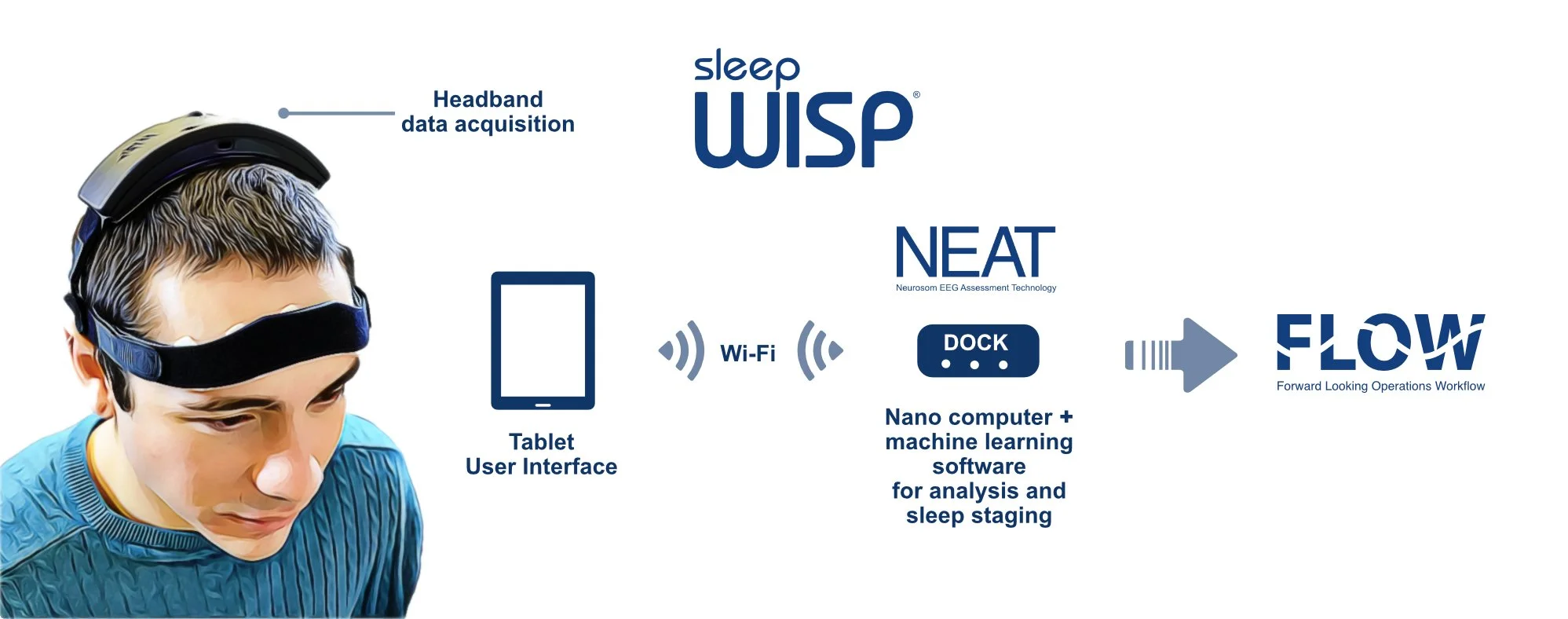Sleep Therapy and the Study of Mild Cognitive Impairment
In 2022, the Brain Electrophysiology Laboratory (BEL) Company was awarded $2.5 M from the National Institute of Aging to study the improvement of deep sleep (N3) in patients diagnosed with Mild Cognitive Impairment (MCI). This landmark study will be conducted in collaboration with Dr. Miranda Lim, MD, PhD, BEL Collaborator in Portland, Oregon , and Dr. Ruth M. Benca, MD, PhD of the Wake Forest School of Medicine.
Don Tucker, PhD, CEO at BEL, and collaborators: Dr. Miranda Lim, MD, PhD, and Dr. Ruth M. Benca, MD, PhD
Recent scientific evidence points to a relationship between impaired sleep and the progression from MCI to Alzheimer’s Disease and Related Dementias (ADRD). Furthermore, published work from BEL collaborator Jeff Iliff concludes that a process called glymphatic clearance is the necessary biological mechanism for clearing the brain of neurotoxins and harmful plaques. (Iliff, et al, 2019). Glymphatic clearance occurs during deep sleep when the body increases blood flow throughout the brain. Lack of deep sleep in older persons is hypothesized as one of the underlying issues of MCI and the onset of ADRD.
During this study, the researchers will use the BEL developed Sleep Therapy technology, which uses transcranial electrical stimulation (TES) to gently extend the participant’s time spent in deep sleep, or N3. (Hathaway, et al, 2021). The Sleep Therapy is administered by a comfortable headband called the WISP, which is applied before bedtime. The WISP electrodes read the EEG of the participant using BEL’s own NEAT software to accurately track the sleep stages. TES is applied briefly at the correct moment to synchronize the brain’s electrical patterns into the slow oscillations that occur during N3 sleep. (Morgan, et al, 2021.)
In addition to measuring the amount of time participants spend in deep sleep, memory tests will be given to check any improvement of cognitive function after Sleep Therapy. Participants will include adults diagnosed with MCI, as well as a “normal” control group.
Bibliography
Hathaway, E., Morgan, K., Carson, M., Shusterman, R., Fernandez-Corazza, M., Luu, P., & Tucker, D. M. (2021). Transcranial Electrical Stimulation targeting limbic cortex increases the duration of human deep sleep. Sleep medicine, 81, 350-357.
Morgan, K. K., Hathaway, E., Carson, M., Fernandez-Corazza, M., Shusterman, R., Luu, P., & Tucker, D. M. (2021). Focal limbic discharges explain the large slow oscillations of the EEG in human deep sleep. Sleep medicine, 85, 291-302.
Iliff, Jeffery, Simon, Matthew, Simon (2019). CrossTalk proposal: The glymphatic system supports convective exchange of cerebrospinal fluid and brain interstitial fluid that is mediated by perivascular aquaporin-4.
J Physiol. 2019 Sep; 597 (17): 4417-4419. doi: 10.1113/JP277635. Epub 2019 Aug 6.



